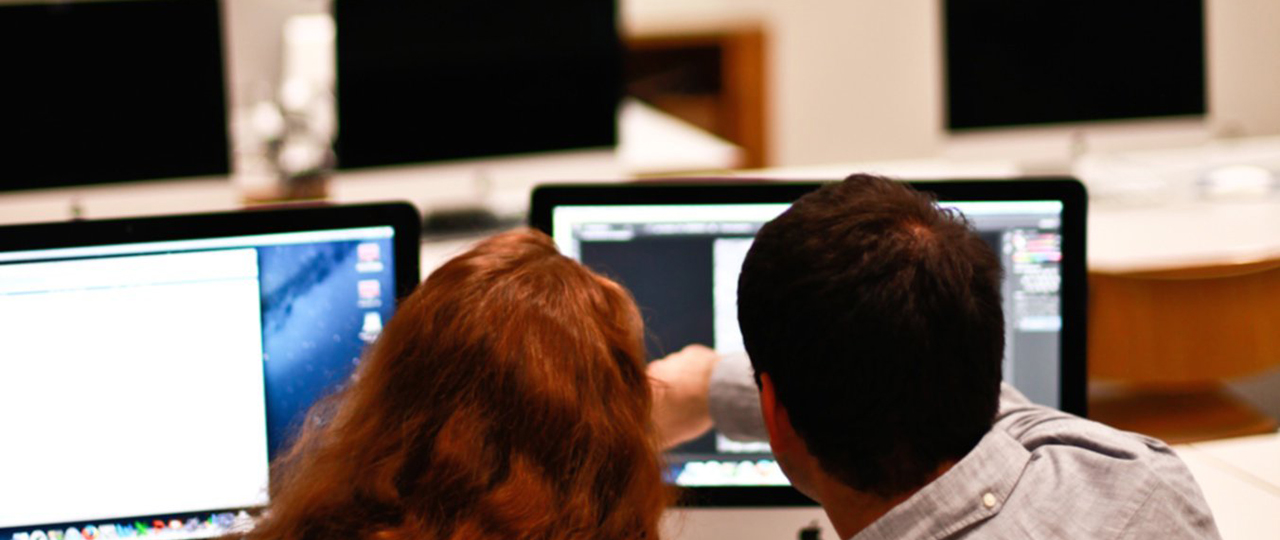
Projects of Doctoral Students
Welcome to the DH Lab doctoral students' project page! Here we present the innovative projects of our PhD students. Each project marks a significant step in research and demonstrates the diversity of topics we explore. Immerse yourself in the world of Digital Humanities, enriched by the work of our talented researchers.
Prof. Dr. Peter Fornaro, Prof. Dr. Lukas Rosenthaler.

This work “Spectrum of Papyrus Image Quality (Ghent, P. 69)” is a derivative of “Brief” by Universiteitsbibliotheek Gent, marked with CC0 1.0 Universal. This derivative © 2024 by Victoria G. D. Landau is licensed under CC BY-NC-SA 4.0.
The world is witnessing digital transformations at an unprecedented pace, offering an immense potential that many disciplines, especially within the humanities and social sciences, are not yet equipped to handle. Questions about and challenges facing human heritage and information are at the forefront of debates in all sectors, equally overestimating and disparaging digitization processes and born-digital resources. This doctoral project explores the dimensions of 21st-century data management and preservation of cultural heritage, foremost ancient heritage, to ensure long-term access for research, institutional and public purposes.
This investigation includes an examination of what we understand as «cultural heritage» and «ancient heritage», how this translates into a digital understanding, and which analog and digital standards and best practice approaches are already in use and will be viable in the future — to support both large-scale initiatives (e.g., those adhering to the 1972 UNESCO World Heritage Convention or the Memory of the World Programme) and often subject-specific, medium-scale enterprises, such as collections, archives, databases, and research projects. Generating common ground will require conscious transdisciplinary efforts, shared cross-disciplinary concepts and vocabularies, as well as interoperable systems and structures.
In order to physically retain and digitally capture cultural objects themselves, a vital element in the protection and preservation of cultural heritage is understanding the many threats to cultural property — natural hazards, armed conflict, and obsolescence, both analog and digital, as well as individual human factors such as neglect, fragmentation of artefacts, trafficking, profiteering, and insufficient funding. Looking into the past by incorporating discussions of provenance and acquisition, and anticipating the future by outlining preparation steps for both best- and worst-case scenarios, the thesis further aims to illustrate the links between and the responsibilities of key actors involved. Merging humanities challenges with digital pathways, it intends to produce individually tailored and generally suitable processes that contribute to a landscape of heritage accessible to all.
Prof. Dr. Peter Fornaro, Prof. Dr. Aden Kumler
Member of the Graduate School of Social Sciences (G3S): Profile
Prof. Dr. Peter Fornaro, Prof. Dr. Lukas Rosenthaler, Prof. Dr. Karolina Soppa (Bern University of Applied Sciences)
This project positions itself at the intersection of AI innovation and the intellectual achievements of the humanities and art history. In light of the challenges presented by NLP and CV methods in humanities research, it endeavors to create a symbiotic relationship that will enable a critical digital space for the analysis and assessment of the visual arts.
Prof. Dr. Peter Fornaro, Prof. Dr. Lukas Rosenthaler, Prof. Dr. Gerhard Lauer (Johannes Gutenberg University, Mainz)
This doctoral thesis focuses on web standards, i.e. Linked Open Usable Data (LOUD) specifications (such as the International Image Interoperability Framework (IIIF) Presentation API 3.0, Linked Art, and the W3C Web Annotation Data Model), supporting the description and dissemination of cultural heritage resources. Two research axes or perspectives have been identified to investigate LOUD, the first axis focusing on community practices, i.e. assessing the mechanisms by which organisations, individuals and apparatuses are entangled in consensus-making, and the second on semantic interoperability, i.e. how to make data meaningful to machines in a standardised and interoperable manner. It is grounded as part of the SNSF-funded research project Participatory Knowledge Practices in Analogue and Digital Image Archives (PIA), which aims to develop a citizen science platform around three photographic collections from the archives of Cultural Anthropology Switzerland (CAS), formerly the Swiss Society for Folklore Studies. The empirical part of the research extends beyond deploying LOUD standards within the PIA research project to include an analysis of the social fabrics of the IIIF and Linked Art communities, as well as an investigation of LUX, Yale Collections Discovery platform.
Prof. Dr. Peter Fornaro, Prof. Dr. Walter Leimgruber, Dr. Robert Sanderson (Yale University)
The dissertation investigates the question of local social changes and to what extent these are reflected in the Schnitzelbänke of the UNESCO Basel Fasnacht, employing big data analytics to uncover patterns and insights.
Prof. Dr. Peter Fornaro, Prof. Dr. Walter Leimgruber
Shuran Yang is currently a Doctoral Student at the Digital Humanities Lab of the University of Basel. In 2012, she became a Lecturer at the Tibetan University of Nationalities, specializing in documentary and creative multimedia research and teaching. In 2021, Shuran Yang co-founded Maisten Technology Co Ltd, which provides augmented reality (AR) and virtual reality (VR) technical support and solutions to commercial clients and research institutions. Her project experiences have made her emphasize the importance of immersive storytelling and user experience (UX) in immersive environments (such as AR, VR, and Metaverse). As a PhDcandidate in the Digital Humanities Lab, her research focuses on the UX of immersive environments in cultural spaces.
Research area:
- Immersive Storytelling
- User Experience
- Augmented Reality
- Virtual Reality
Prof. Dr. Gerhard Lauer; Prof. Dr. Berenike Herrmann
